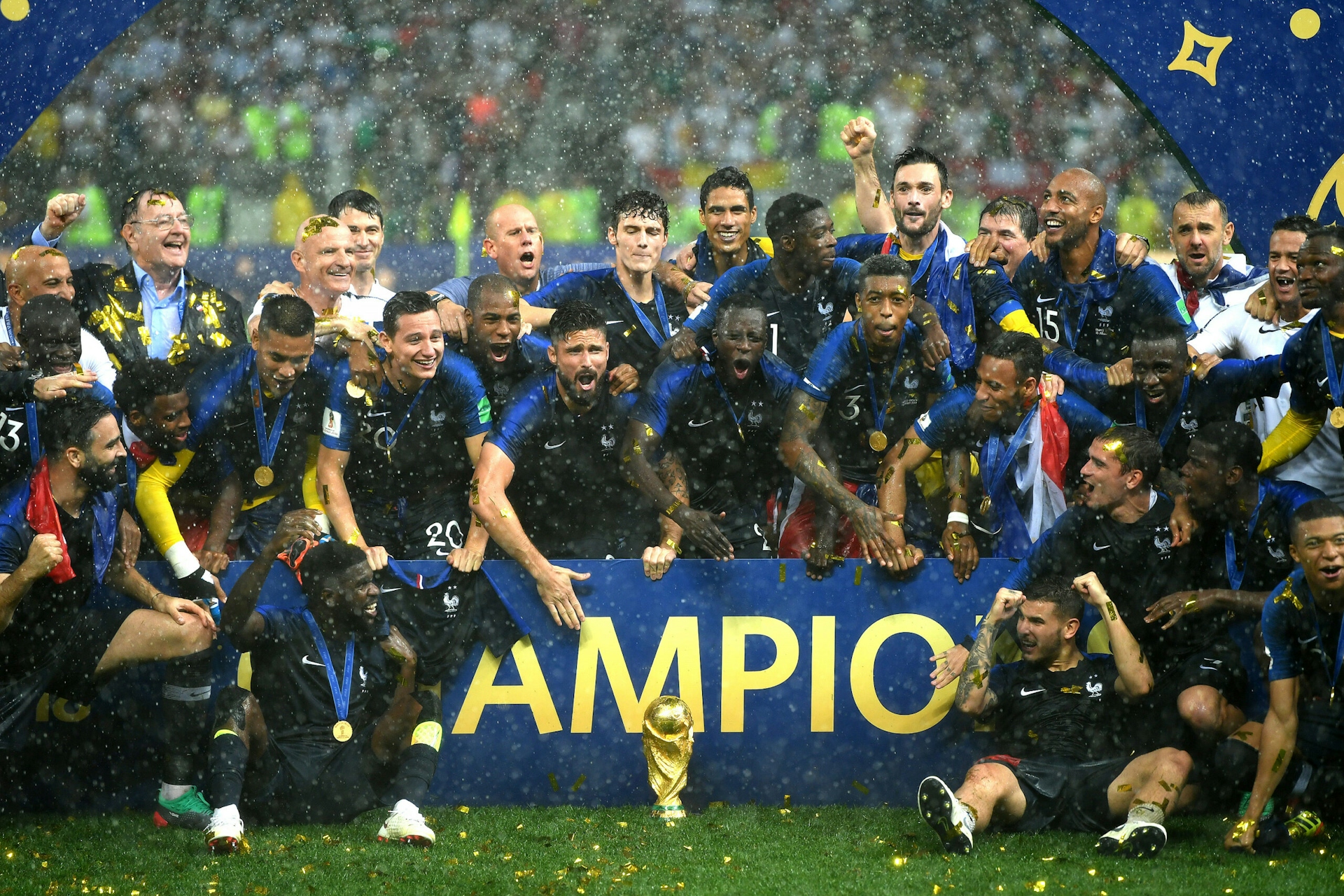European Soccer Fans Dismiss Idea of a World Cup Every Two Years, but Americans Love it

FIFA’s proposal to increase the frequency of the World Cup from every four years to every two years has pitted soccer’s global governing body and its smaller member nations against some of the sport’s most powerful nations and prominent leagues in a months-long public relations battle. New international polling data indicates fans in different countries also have vastly different opinions about holding the World Cup every other year.
American Soccer Fans Are Among the Most Ardent Supporters of a Biennial World Cup
What the numbers say
- Self-identified soccer fans in the United States were about four times as likely to support the move to a biennial World Cup than to oppose it, with 61 percent in favor of the proposal and 15 percent against it. The share of U.S. soccer fans who said they “strongly” support holding the World Cup every other year, 27 percent, was more than five times greater than the share who said they “strongly” oppose doing so.
- The net support rating for the biennial World Cup proposal among U.S. soccer fans — the share in favor of the plan minus the share opposed to it — was 46 percentage points. Of the 12 countries in which Morning Consult conducted the survey, only India had a higher net support among its soccer fans, at 49 points. India’s men’s national team has never participated in the World Cup.
- Net support for the proposal was positive in seven of the 12 countries in which the survey was conducted: India, the United States, Canada (28 points), Brazil (23 points), Australia (23 points), Japan (6 points) and Argentina (4 points). Sentiment among soccer fans in South Korea toward the proposal was evenly split, putting net support at zero points.
- Western European soccer fans largely opposed the biennial World Cup proposal. Net support among soccer fans was negative in Germany (negative 33 points), France (negative 13 points), the United Kingdom (negative 11 points) and Italy (negative 1 point).
What it means
Earlier this year, FIFA commissioned its own survey to gauge fan support for increasing the frequency of the World Cup. While FIFA claimed its survey showed that a majority of soccer fans favor its plan, detractors of the plan criticized FIFA’s question structure as indirect and argued its framing of the results was disingenuous.
FIFA’s rationale for holding the World Cup more often is that it would generate more revenue to be shared with all 211 of FIFA’s national federations (including smaller countries who don’t actually participate in the event) and increase fan interest in international competition. Critics of the plan, including several of the sport’s continental governing bodies and domestic leagues, say that it would cost them billions in revenue from their own competitions.
The independent Morning Consult research indicates that while soccer fans in Western Europe’s soccer hotbeds largely oppose a biennial World Cup, holding the event more often could help grow enthusiasm for soccer in other parts of the world. FIFA has touted the plan as beneficial to smaller countries, particularly those in Africa, but the survey suggests the change would also be popular among fans of the sport in highly populated — and potentially lucrative — countries like India, the United States, Canada, Brazil and Australia.
In the United States, soccer is more popular among younger audiences who are less averse to bucking longstanding tradition. A biennial World Cup would also mean more opportunities to qualify, which might appeal to fans in countries that have historically struggled to do so. And while European soccer fans can watch the best players and most high-profile clubs year-round in popular domestic leagues, many fans in countries outside the traditional powerhouses only get a glimpse of top-tier competition every four years.
FIFA is widely believed to have the votes necessary to make the change under its one nation-one vote governance system, but it is unlikely to force it in the face of opposition from UEFA and CONMEBOL, the sport’s governing bodies in Europe and South America, respectively. The issue is scheduled to be discussed next by FIFA members at a virtual summit on Dec. 20.
The polls were conducted Nov. 5-18, 2021, among 400-789 self-identified soccer fans per country, with margins of error between plus or minus 3 percentage points and plus or minus 5 points.
Alex Silverman previously worked at Morning Consult as a reporter covering the business of sports.